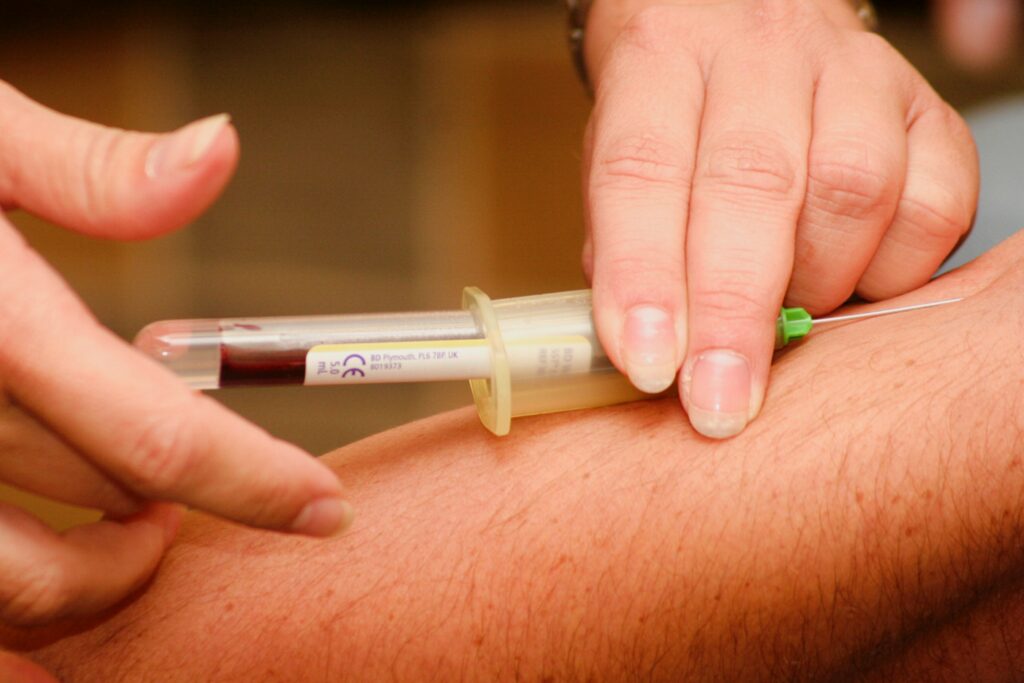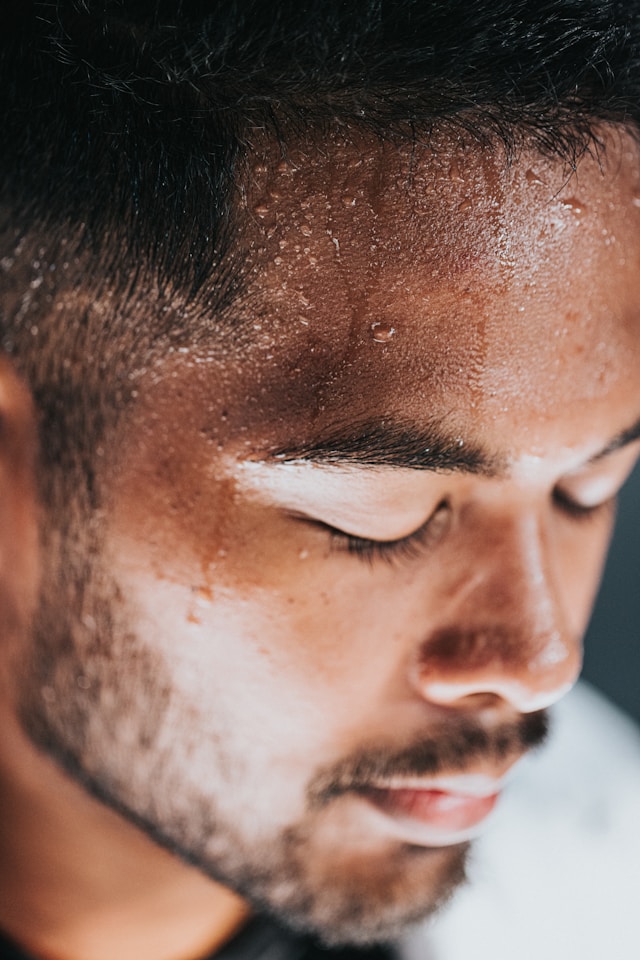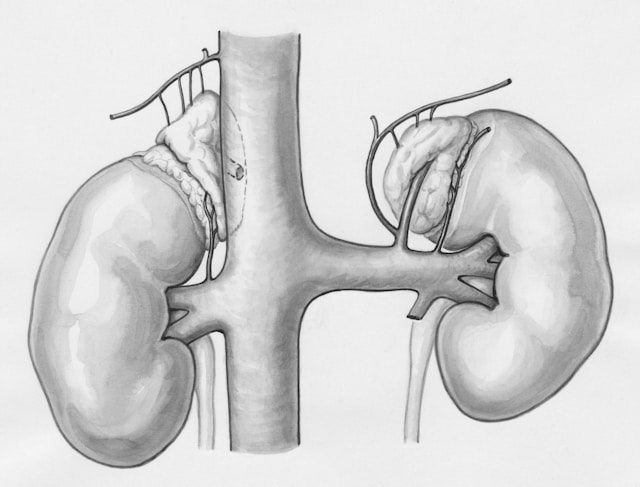My annual lab tests showed I was seriously dehydrated, so in this blog “Drink Up: How Hydration Supports Your Health and Fitness Goals” I am going to share with you how to know you are dehydrated and what to do about it!
Water is often called the essence of life because it fuels every critical function in the body.
Our bodies are composed of approximately 60% water, which plays a crucial role in nearly every bodily function.
Staying adequately hydrated is not only vital for overall health but also critical for maintaining good kidney function and compensating for water lost during exercise.
Lab Tests for Detecting Dehydration

Dehydration can be detected through a few different blood tests.
- A comprehensive metabolic panel (CMP) tests basic metabolic functioning and includes markers for electrolyte balance, kidney health, and liver health.
Imbalances in some of these markers may indicate potential dehydration. Electrolytes are minerals that carry an electric charge when dissolved in water and blood. They are affected by hydration status as they help to balance the body’s water levels. When water levels are too high, electrolyte concentrations can drop if not replenished.
Conversely, if water levels are too low, then electrolyte concentrations rise. Therefore, increased levels of serum electrolytes on a CMP can signal possible dehydration. These include:
Elevated sodium levels
Elevated chloride levels
Elevated calcium levels
Elevated potassium levels
As the kidneys are responsible for concentrating urine and filtering out and excreting waste products, decreased fluid intake can affect kidney function, leading to changes in kidney markers on a CMP:
Elevated blood urea nitrogen (BUN): Urea is a metabolic waste product that is filtered and excreted by the kidneys. BUN may increase during dehydration due to a decrease in blood flow to the kidneys, which reduces overall filtration and excretion.
Elevated creatinine levels: Similar to BUN, creatinine is a waste product typically excreted by the kidneys, and its levels may increase with reduced water intake.
Low estimated glomerular filtration rate (eGFR): eGFR is the kidney filtration rate. Reduced fluid intake may lead to less kidney filtration, lowering eGFR levels.
High BUN to creatinine ratio: When dehydrated, BUN may increase more than creatinine, creating a higher BUN level than creatinine.
- Complete Blood Count – is a routine blood test that evaluates the quantity and quality of red and white blood cells and their components. It involves analyzing a sample of whole blood, including red blood cells and plasma (the liquid component of blood).
Dehydration may reduce the plasma volume, thereby increasing the concentration of red blood cells proportionally, resulting in:
Elevated hemoglobin: The protein in red blood cells that binds and transports oxygen.
Elevated hematocrit: The measurable proportion of red blood cells compared to total blood volume.
Common Causes of Dehydration

There are many reasons why individuals may become dehydrated, the most common of which include:
- Excessive sweating from heat, exercise, or fever
- Insufficient water intake through diet and fluids
- Medications such as diuretics that cause increased urination
- Vomiting/diarrhea
The Role of Water in Overall Health
Water is indispensable for a multitude of bodily processes, including:
- Regulating Body Temperature: Water helps maintain a stable body temperature by facilitating sweating and respiration.
- Supporting Digestion: It aids in breaking down food and absorbing nutrients.
- Lubricating Joints: Proper hydration keeps your joints well-lubricated, reducing discomfort and improving mobility.
- Boosting Cognitive Function: Dehydration, even mild, can impair concentration, memory, and overall cognitive performance.
- Detoxification: Water assists in flushing out toxins through urine and sweat, keeping your body clean and functioning optimally.
Hydration and Kidney Health

Your kidneys are the body’s natural filtration system, and water is their primary partner in maintaining balance. Here’s how staying hydrated benefits kidney function:
- Promotes Efficient Waste Removal: Adequate water intake ensures that your kidneys can effectively filter blood and remove waste products through urine.
- Prevents Kidney Stones: Drinking enough water dilutes urine, reducing the risk of kidney stone formation.
- Balances Electrolytes: Water helps maintain a proper balance of electrolytes like sodium, potassium, and calcium, essential for muscle function and overall health.
When you’re dehydrated, your kidneys have to work harder to conserve water, which can lead to strain and, over time, increase the risk of kidney-related issues.
Replenishing Water Lost During Exercise

Physical activity significantly increases water loss through sweat. Without proper hydration, your body struggles to regulate temperature and deliver nutrients to muscles, which can impair performance and recovery. Here are key tips for staying hydrated during exercise:
- Pre-Hydrate: Drink water an hour before your workout to ensure you start well-hydrated.
- Hydrate During Exercise: Sip water every 15-20 minutes, especially during intense or prolonged activities.
- Replenish Post-Exercise: After working out, drink water to replace the fluids lost and aid in muscle recovery.
For those engaging in long or high-intensity workouts, consider beverages with electrolytes to replenish lost minerals like sodium and potassium.
Signs You’re Not Hydrated Enough
Your body gives clear signals when it needs more water. Common signs of dehydration include:
- Dark yellow urine
- Dry mouth and skin
- Fatigue or dizziness
- Headaches
- Muscle cramps
How Much Water Do You Really Need?

While the “8 glasses a day” rule is a good starting point, individual needs vary based on factors like age, weight, activity level, and climate.
A general guideline is to drink half your body weight in ounces of water daily.
For example, a 150-pound person should aim for about 75 ounces of water per day, increasing this amount if exercising or in hot weather.
How to make Hydration a Daily Habit
My biggest challenge is getting enough water every day so here are my tips and techniques.

I incorporate these tips into my routine to stay hydrated:
- Carry a Water Bottle everywhere: Keep water accessible throughout the day.
- Infuse Flavor: Add slices of citrus, cucumber, or berries for a refreshing twist.
- Eat Hydrating Foods: Incorporate fruits and vegetables like cucumber, and oranges into your diet.
- Set Reminders: Use alarms or apps to remind you to drink water regularly.
- Use driving for guzzling! – this has worked well for me!
- Drink 16 ounces right after exercise – this is the most important time to rehydrate!
Final Thoughts
Hydration is a simple yet powerful tool for enhancing your health, improving kidney function, and supporting your body during exercise. By making water a priority, you’re investing in your overall well-being and ensuring that your body has the resources it needs to thrive. So, grab that glass of water and toast to better health—your kidneys and body will thank you!




























